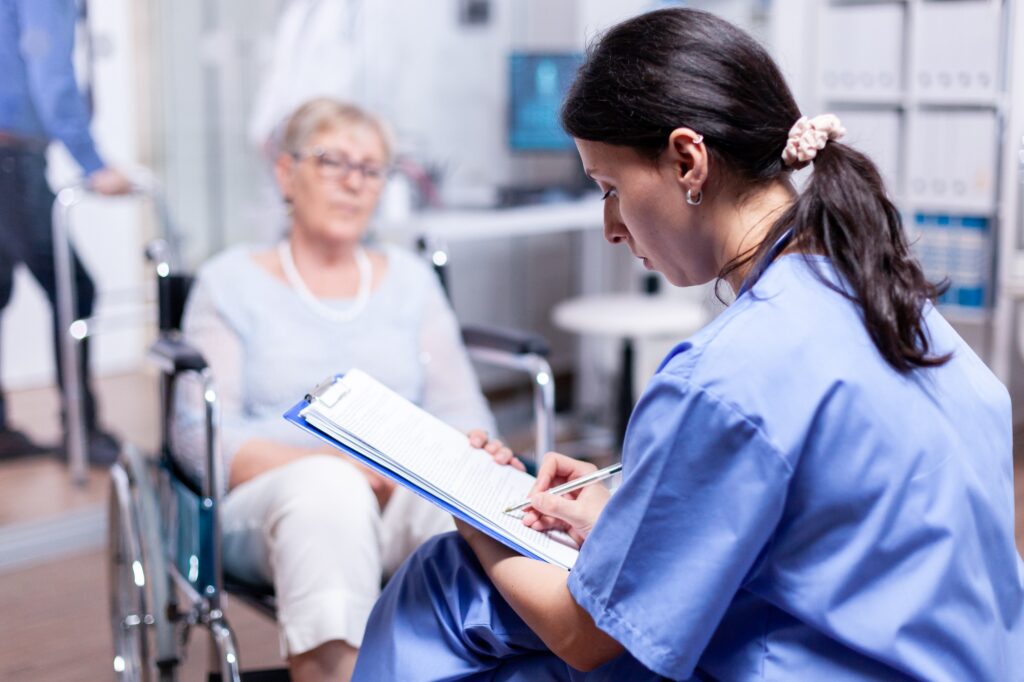What is an esophagogastroduodenoscopy?
An esophagogastroduodenoscopy (EGD) is an endoscopic procedure where a long, slender, malleable tube, or “scope,” is put into an individual’s mouth and advanced to the small intestine. The scope includes a light and camera on the end, which allows our GI specialists at Gastroenterology Associates to review the lining of the esophagus, belly easily, and the beginning of the small intestine.
An EGD procedure is often performed as a way to determine the explanation of GI symptoms, such as pain in the abdomen, acid reflux, trouble swallowing, bleeding, or abnormal x-ray results. An EGD may also be performed for Baton Rouge, LA patients who experience constant heartburn to screen for changes that are associated with esophageal cancer. Should you require an EGD, request an appointment with a gastrointestinal specialist at Gastroenterology Associates.

What are the benefits of an EGD?
Undergoing an esophagogastroduodenoscopy may be beneficial for several reasons. It allows your GI provider to directly assess the inner lining of the esophagus, stomach, and the first part of the small intestine(known as the duodenum). Other benefits of an esophagogastroduodenoscopy involve:
- May help determine the causes of symptoms like nausea, vomiting, pain, and heartburn
- Assists in diagnosing a range of gastrointestinal issues (including gastrointestinal infections, Crohn’s disease, GERD, celiac disease, and more)
- Typically is an efficient, safe, and quick process
- Enables polyp removal, the biopsy of tissues, and additional small procedures
What should I expect the day prior to my esophagogastroduodenoscopy?
You will get instructions from your doctor explaining the required preparatory steps for an EGD. Many patients will be allowed to eat normally the day before the exam. Our GI specialists may request you not take anything by mouth after 12 am other than medications. You must follow the requirements provided by our team at Gastroenterology Associates in order for your EGD to run smoothly. We’ll also give you additional instructions about any medications you take. In most cases, you can take your medications as you normally would. In certain circumstances, this may not be the case, especially with blood thinners (i.e., Coumadin®, warfarin, Plavix®, aspirin, anti-inflammatories) or if you are diabetic — in these cases, we will give you special instructions.
What should I expect on the day of my EGD?
It’s advised to show up for your EGD 1 – 1.5 hours before your procedure. You’ll need to replace your clothes with a hospital gown and an IV will be put in your arm or another area so we can administer sedation. You will be connected to special equipment that helps your doctor track your heart rate, blood pressure, oxygen levels, and much more throughout your treatment.
Once in your private exam room, we’ll ask you to lie on your left side on the exam table and then sedation will begin. From there, the endoscope will be inserted into your mouth. The endoscope will be carefully moved through your esophagus, stomach, and the first portion of the small intestine. A small amount of air will be injected through the scope into the GI tract in order to help your provider and our team see better. Any fluid left over in the upper GI tract will be removed through the endoscope. Depending on the results of the exam, a variety of things can be done, like biopsies, the removal of polyps, and the control of bleeding. Typically, the exam takes between 10 – 20 minutes. Following the exam, you will be taken to one of our comfortable recovery rooms so we can monitor you while the sedation wears off.
When can I expect my exam results?
After your exam, our team will review your exam results with you. A number of our patients have a hard time recalling this conversation after the exam because they have a foggy brain due to the intravenous sedation. We encourage you to bring a family member with you to this discussion. We will also give you a typed-up report. In many situations, you will be informed of any biopsy results within a week.
Does an EGD carry any risks?
Typically, an EGD is a safe and reliable procedure. Overall, problems develop in about 1% of patients. Most complications are not life-threatening; although if a complication occurs, it could require hospitalization and surgery. Before your exam, the nursing staff will share a consent form with you to ensure you understand the unlikely risks associated with this procedure. Should any questions or concerns arise, these can be discussed with our team before your procedure.
Such as any other test, the EGD performed at our Baton Rouge, LA gastroenterology location is not foolproof. There is a minute, accepted chance that abnormalities, like cancers, can be missed. It’s paramount to continue to follow up with our team and inform them of any new or consistent symptoms.
What are alternatives to an EGD?
There are other options available as an alternative to an EGD to a certain extent. These alternatives will depend on the reason for requesting an EGD in the first place. In most cases, an EGD is the standard way to check for and treat abnormalities in your upper GI tract. An upper GI/barium swallow can evaluate your upper GI tract; however, only a diagnostic exam. Treating these findings might necessitate an EGD or other surgery.

Diagnostic EGD to treat symptoms
EGD FAQs
Are an EGD and an upper endoscopy the same thing?
An EGD may be referred to by a variety of names. This exam is sometimes reffered to as a “gastroscopy” or an “upper endoscopy.” Even though these names may be different, they are usually the same thing as an EGD.
What is considered a "normal" result for an EGD procedure?
Normal results for an EGD typically mean that your GI provider did not identify abnormalities in the upper part of the gastrointestinal tract. However, normal results may be represented by a normal color and smooth texture in the esophageal, stomach, and duodenal areas. Additionally, there shouldn’t be any signs of growths, bleeding, or inflammation within these structures. It’s vital to know that a “normal” result does not always rule out all medical conditions. Some medical issues might not be noticeable during an EGD or could be present in another area of the digestive tract, beyond the field of the endoscope used to perform the procedure.
When might an EGD be recommended?
Your Gastroenterology Associates GI specialist may request an EGD test if you have Crohn’s disease or liver cirrhosis to help keep track of such health concerns. An EGD test might be advised should you experience:
- Black or tarry stools
- Vomiting of blood
- Heartburn
- Pain in the upper abdomen
- Issues with swallowing
- Unexplained loss of weight
- Persistent nausea
What might I need bring to my EGD visit?
When you come in for your esophagogastroduodenoscopy procedure, you may be required to fill out some paperwork. As such, please carry your insurance card and identification with you to your appointment. It might be a good idea to bring a written list of any medications you might take, their dosages, and the conditions for which you take them. We recommend that you keep valuables, such as jewelry, at home.
